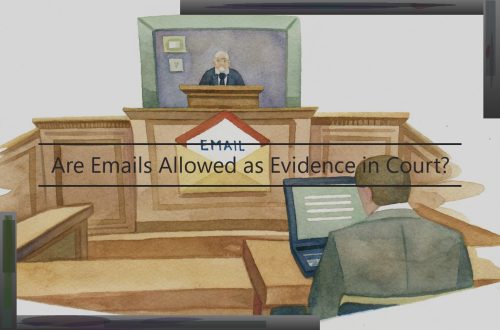The Tax Treatment of a House Gift
What Is Gifting a House?
Gifting a house to another person is, in simple terms, the act by which the owner of a house gives that house away to a new owner with no money exchanged in return at the time. So what is the difference between gifting a house to a new owner and selling a house to a new owner? Essentially, if you gift a house to somebody, you receive nothing in return. When you sell a house, you invariably exchange possession of the house in return for some payment from the buyer.
In legal terms, to make a gift of land or property, you need to comply with the requirements of a legal concept called a trust. The UK uses a "common law" system under which many laws are developed by the application of judicial case law by judges, interpreted by lawyers. English law has developed a number of ways in which a gift can be made legally, but the fundamental concept is that there must be a transfer with no return.
To be legally valid and binding, you need to physically give (what is called) "actual possession", constructive possession, and intention (the "three certainties"). In this regard , a gift of land or property meets a separate definition in the Trusts of Land and Appointment of Trustees Act which states that if you agree to hold freehold land on trust for somebody else you must transfer the legal estate now. When giving a gift of land you are, therefore, also transferring it subject to the trusts created by the deed of gift (the legal document). If the other person has "equitable interest" in the subject the property is held in the trust and the legal title is transferred (equity and law).
If you are thinking about gifting a property to someone, you must bear in mind the following rules: In general, you cannot create a conditional gift unless the condition itself is legal and enforceable. There are some exemptions to this rule; for example, you can create a condition in trust for a future date (eg when court approval in the form of a decree is granted). Because the significant benefit of the conditional gift cannot be enforced the gift cannot take effect until the court’s agreement is given and therefore the gifts have no gift value until that date.

Gift Tax: The Basics
In the United States, there is currently a federal gift tax, which operates much like an estate tax (with some differences). The maximum rate on gifts and estates is currently 40%. The person who gives a gift pays the gift tax, not the recipient. As with other taxes, there are thresholds and exemptions for the Gift Tax. Specifically, in 2019, an individual can give away up to $15,000 per year, to any number of people, without paying a gift tax and without reducing the amount that can be given away at death. In addition, the $15,000 "annual exclusion" is in addition to the so-called "lifetime exemption." For couples, the lifetime exemption is currently $22.8 million, meaning, essentially, that a married couple can give away a total of $22.8 million during lifetime (combined) without incurring a gift tax or reducing the amount that can be given away "at death." By reason of these amounts, it is presumably safe to assume that very few individuals or married couples will be subject to the federal gift tax in the near future. In the case of a home, one may make a larger gift, pursuant to the so-called "free use and enjoyment" exception. An individual can give up to $150,000 per year to (or for the benefit of) another person, without incurring a gift tax or consuming the annual exclusion. So, when transferring a home, an individual can "give" the home to his or her children, or anyone, for that matter, and continue to live there rent-free.
How to Assess Fair Market Value
When a house is gifted, the determination of its fair market value is crucial for tax reporting purposes. Fair market value is defined as the price at which property would sell between a willing buyer and a willing seller, both acting at arm’s length. Valuing a property can sometimes be challenging, especially if it is off the market and the transfer takes place internally within a family.
While the Federal gift tax law imposes no particular requirement as to the manner of the appraisal, the requirements of the IRS do. After all, the gift tax return (IRS Form 709) must have a signed appraisal attached. In other words, a qualified appraiser will have to be retained by the donor. This can be helpful from a tax perspective, since the value placed by an appraiser will ordinarily obtain a "presumption of correctness" in the determination of gift tax liability.
The appraisal must be signed and must include the following: (i) description of the item or property appraised, with identification of any interest in the property being appraised; (ii) statement of the interest of the donor in the item or property appraised; (iii) statement of the relationship of the appraiser to the donor and to the property appraised; (iv) statement that the appraisal was made for the purpose of filing a gift tax return; (v) declaration that the appraiser has sufficient experience in valuing the type of property being valued, and takes into account the applicable industry valuation standards and guidelines; and (vi) the qualifications of the appraiser, including educational background, professional designations, and membership affiliations.
The appraisal should also contain an analysis of the factors that affect the value of the property, such as the market conditions and description of the history of the property. The appraiser must also address the methodology used in the valuation process. Finally, the appraiser must supply a "Fair Market Value" in United States currency used on the date of the gift. The appraiser must further provide a statement that the appraiser is aware of the statutory provisions governing the federal gift tax, and that such provisions have been considered in the appraisal process when determining the fair market value of the property.
If the IRS questions the value provided, and the appraisal is found to be overvalued by more than 25%, then a $10,000 excise tax is imposed. Therefore, it is critical that the appraisal be accurate.
Generally, property that is co-owned by the donor and donor’s spouse, which the donor transfers to the donee without consideration, is valued one-half of the amount of such co-owner interest in the property. A fractional interest of a property in excess of the donor’s interest must be valued in accordance with industry standards. Even if the property is jointly owned, the granting spouse must file a gift tax return because even if no gift tax is due, the value of the gift will still reduce that spouse’s lifetime exclusion amount.
If property other than cash is attached to the gift, the value of the property with such interest will have to be separately determined.
The Lifetime Gift Tax Exemption
Any gift amounts made above a certain amount may be subject to Gift Tax. This basically means the IRS will tax you on any gift that exceeds the specified annual exclusion (currently $14,000 per year per person). Luckily, there is also an option available for larger gifts: the Lifetime Gift Tax Exclusion.
The current limit for the lifetime exclusion is $5,000,000, and indexing for inflation is expected to kick in beginning in 2012. However, once you decide to use this exclusion for gifting assets, future gifts are a bit more complicated. The amount of your Lifetime Gift Tax Exclusion is reduced by the amount of the gifts that you use as part of it. So if you make several gifts of $2 million each, you then only have $1 million left to use in the future. If you gift the entire $5 million and do not use any of the annual exclusion gifts, you still have $5 million left to donate as part of your estate planning, and this amount is also not taxable at your death.
As a result, if you do wish to gift your house as part of your estate planning, it can affect the tax treatment of your future gifts. By avoiding the lifetime gift exclusion, you may save your entire exclusion amount ($5 million) to apply against future gifts or your estate taxes at your death.
Capital Gains Tax Implications
When a person gives a home to their descendant, capital gains tax (CGT) is not payable at the time of the gift. This is because section 118(1) of the Income Tax Assessment Act 1997 exempts from CGT a disposal of property that was the main residence of the taxpayer if the market value at the time of disposal is $10,000 or less. The $10,000 exemption applies to the aggregate of the disposals made by an individual during an income year. Unless the taxpayer elects otherwise, the taxpayer’s main residence is taken to be situated in that individual’s current place of residence.
Where a father transfers a property to his daughter, the daughter will also not pay any CGT when she receives the property if the value of the property is $10,000 or less. However, for CGT purposes, the daughter will be deemed to have acquired the property for $0. Once a person has acquired a property, any future increase in the value of the property will be subject to CGT. The amount of CGT payable on the subsequent sale of the property will depend upon the difference between the sale value of the property and the cost base. If the sale value exceeds the cost base, then CGT will be payable on the gain. If the daughter sells the property for $20,000, $80,000 or $100,000 in a subsequent income year, then the daughter will be assessed to pay CGT on the increase in value of up to $100,000.
There are rules which adjust the cost base of the property for these calculations. One such adjustment is the "stepped up" cost base rule. Under this rule, if the asset was inherited from a deceased estate, the tax law deems the cost base of the asset to be the market value of the property at the date of death of the deceased according to the valuation of a qualified valuer (or the market value at the date of acquisition if that is higher). This valuation should be sought if the CGT consequences are significant because the cost base may increase significantly when compared to the cost base at the time of the original acquisition. For example, if the property was originally acquired for $5,000, the cost base for the original owner may be $5,000 for CGT purposes. If the property is given to the daughter who then sells it for $20,000, then the daughter would be assessed on the CGT liability of $15,000 (excluding any CGT discount concessions that may apply). However, if the property was inherited from the father by the operation of the law, the daughter may be able to use the stepped-up cost base rule and be assessed only on the CGT liability of $10,000.
State Tax Effects
While the federal government has no state gift tax, that doesn’t mean that some states don’t. This may be particularly true for some of the neighbors here in the Midwest: Minnesota, Iowa, and North Dakota are among the few states that have state gift taxes currently. And this list is subject to change! You want to make sure you have a clear handle on how your state taxes gifts of real estate before you give, since the implications can actually be significant .
On top of that, some states impose capital gains taxes on real estate. So even if the gift tax has been eliminated and the gift tax does not apply to the real estate during its transfer between spouses, the ultimate capital gains will be a tax burden in the future. The future liability to both taxes under state laws make it necessary to consider how state taxes affect the transfer.
Necessary Legal Paperwork
A gift of a house is the same as any other gift in that it is advisable for the recipient to obtain whatever documentation is possible at the time of the transfer. The type of legal documentation required to substantiate the gift will depend upon the manner in which the gift is accomplished.
If the gift is by deed, the most common document is the deed itself. The deed need not state that it is a gift or that a gift is intended. If the deed is properly executed and delivered, it is a gift.
If the donor intends to treat the gift of a house as a sale or otherwise consider the possibility of being paid by the donee, we recommend obtaining a written deed of trust. This is because, under federal tax law, the transfer of cash to the donee may be considered a loan to the donee.
If the transaction is structured as a loan, then it must comply with special IRS rules. Because the gift can be treated as a loan, the existence of a recorded deed of trust will protect the donor. Of course, one must consider the fact that the donee owns the equity. Also, the donee must pay the interest and property taxes to avoid adverse tax consequences.
If the gift is not by deed but in some other manner, the documentation is less important. A signed writing evidencing the gift may be sufficient. A check can provide evidence of a gift. If the gift involves real estate, a gift letter properly stating that the transfer is a gift must also be recorded with the county recorder.
Get Professional Guidance
Tax implications arising from gifting a house can be extremely complex, and it’s always best to seek advice from a qualified tax professional or attorney. An established expert will be able to navigate complex tax implications. Here are some tips to consider when selecting an advisor to assist with tax implications: Review their credentials. Make sure the advisor is well credentialed and their educational background is relevant to your situation. Ask questions when you’re looking for a legal professional, such as what they charge for services and whether they have experience working with clients in similar situations. For accountants and financial advisors, ask them if they have the appropriate training and professional designations, such as CPA or CFP. Find someone who will closely review your situation. Gifting a house is not a one-size-fits-all situation. Every family has different circumstances, and a good advisor will take the time to get to know you and your family when helping you make decisions. Make sure your advisor asks a lot of questions and shows a genuine concern for you. If they don’t, consider finding someone else. Pay special attention to estate planning issues. Gift taxes can be quite complicated when real estate is involved, and there can be estate gift tax consequences. Make sure a qualified advisor isn’t overlooking important tax situations when they are providing their services.
Frequently asked questions about gifting a house
Gifting a house is a complicated process and there are a lot of nuances we couldn’t possibly cover in this blog. Here are a few additional questions we commonly receive:
Who pays the gift tax when gifting a house?
In general, the person making the gift pays the tax, but there are certain tricks. The donee (the person receiving the gift) may elect to treat the gift as made one half by each spouse. This means that the donor must file a 709 gift tax return, but the donee only pays tax on his or her part. In other words, the tax burden is shared. However, any filing requirement makes it advantageous for donors to pass on the gift tax return to clients to file.
What happens if you mistakenly gift a house?
This issue can happen when a deed conveying property is executed, but not recorded. If the donor had not intended to make a gift, but simply failed to record the deed, the unrecorded deed creates a presumption of a gift. To rebut this gift presumption , the donor must present clear and convincing evidence of differing intent. It is important to note that the presumption is that the donor wanted to make a gift, not that he did. This rule is not applicable in Florida.
What if the intended recipient of the house dies before the donor?
Donors who want flexibility in deciding who gets a gifted real estate interest when the intended recipient dies may use a provision conveying the property to the intended recipient’s appointee under that person’s will.
Does gifting a house affect Medicaid eligibility?
From a Medicaid perspective, transferring real estate interests into an irrevocable trust constitutes a gift, which can result in a 60 month penalty period during which no Medicaid benefits, including nursing home benefits, will be paid. However, transfers of interest between spouse or from parents to minor children and transfers in accordance with a coordinated plan that includes income compensation are not considered gifts. Before making a transfer, donors should speak with an attorney proficient in Medicaid issues.





